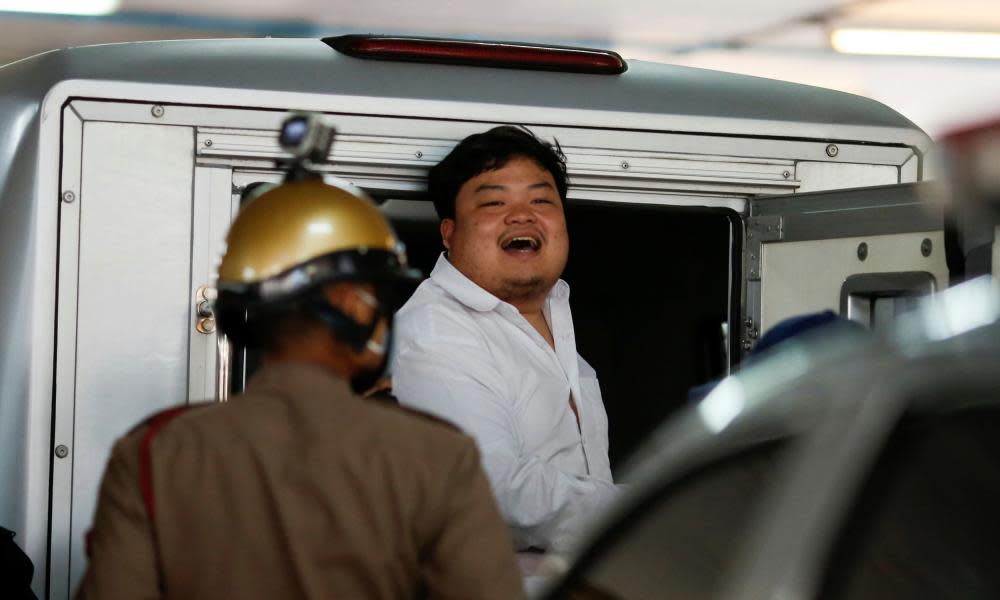Thailand protests: police arrest student activist for sedition

A prominent student protest leader in Thailand has been arrested on charges of sedition as pro-democracy rallies continued across the country.
Parit Chiwarak, 22, whose arrest was livestreamed on social media, was stopped on the outskirts of Bangkok on Friday night. As he was physically carried into a car, he raised his hand in a three-fingered salute – a gesture borrowed from the Hunger Games that is used by protesters and symbolises opposition to the military-backed government.
Parit faces charges relating to a protest held in July including sedition, which carries a maximum seven-year sentence, and breaking coronavirus restrictions that ban public gatherings. Two other protest leaders were arrested on similar charges a week beforehand. They were subsequently released on bail though police have requested this be revoked, according to Human Rights Watch.
The police action comes ahead of a large pro-democracy protest scheduled to be held in Bangkok on Sunday where students plan to step up their calls for reform.
Over recent weeks high school and university students have held rallies on an almost daily basis, demanding the resignation of the government of Prayuth Chan-ocha, who first took power in a 2014 coup and was named prime minister in 2019 following a disputed election.
Protesters have called for reforms to the constitution, which was written under military rule and has cemented the army’s power, as well as an end to the harassment of activists.
Some have also breached a long-standing taboo by voicing unusually direct criticisms of the country’s wealthy and powerful monarchy. Thailand has some of the strictest lèse-majesté (wounded majesty) laws in the world, and anyone who “defames, insults or threatens the king, queen, heir-apparent or regent” can face up to 15 years on each charge.
No protesters have been charged under lèse-majesté.
Prayuth has called for unity, warning this week that students had gone “too far” and that many people disagreed with their actions. Protesters could face more charges, he said, adding that police should investigate anyone behind the protests.
The authorities had acted with restraint, he said, by not clamping down on students who may have broken laws by posting comments on social media. He did not mention the lèse-majesté laws specifically but online criticism of the king has become increasingly direct.
Both Amnesty International and Human Rights Watch have called for the charges against Parit and other protesters to be dropped. Piyanut Kotsan, Amnesty International Thailand’s director, said his arrest was “yet another example of the authorities’ crackdown on the right to freedom of peaceful assembly”.
Repressive laws were being used as a political tool to silence those who peacefully express opinions, she added.
Reuters contributed to this report


